Everything You Wanted To Know About Getting Licensed And Bonded
Some business owners toss around the phrase “licensed and bonded”, and expect the rest of us to be somehow impressed and/or be put at ease at the hearing those words. You usually see the phrase used in the context of contractors, plumbers, roofers, and the like.
On the other side of the coin, if you have your own business, you’ll find that being licensed and bonded is many times mandatory, depending on what state you operate in and what sort of business you run. Let’s take a look at what “licensed and bonded” means, and how to go about achieving it.

Licensed And Bonded Defined
To be licensed means that you have legal permission to do your job. For instance, insurance agents, nurses, real estate agents, and psychologists all need licenses to engage in their occupation. If you want to take this to the most basic, everyday level, you need a license to drive a car. A license is a way of protecting the public from fraud and dangerous practices. It’s an indication that the person in question knows that they’re doing.
Being bonded means that there’s a guarantee in place that assures that the work contracted for will be completed. In other words, bonding isn’t for your protection; it’s to protect the consumer from you. If you hired a bonded contractor to landscape your yard and they didn’t finish the job in the agreed-upon time, the third-party bonding company would pay a different contractor to finish the work, and then the company would go after the original contractor for reimbursement. This sort of bonding is also called a surety bond.
Getting Licensed
The article “How To Get Bonded…In 5 Minutes Or Less” has a couple of links to help you find out if your particular small business needs to be licensed. Each state has its own list of occupations that require a license to practice, and what criteria you must meet. You can check that information by consulting your state’s Bureau of Occupational Licenses. By using these resources, you can quickly find out if you need a license, how to get it, and what qualifications you need, such as passing an exam.
You purchase surety bonds from companies that specialize in selling the bonds, or from an insurance company that offers the service. Bonding is not as big of a necessity as licensing is, but then again, it goes a long way towards instilling confidence in a potential customer. This is particularly useful when you’re dealing with brand new customers whom you haven’t built a working relationship with yet.
There are four types of surety bond:
Performance Bond: This bond ensures that the job will be completed in accordance with the terms and conditions of the contract. This one’s fairly straightforward.
Bid Bond: This ensures that the bidder on a contract will enter into the contract and furnish the required payment and performance bonds if awarded the contract.
Payment Bond: This bond ensures that any suppliers and subcontractors are paid for work they perform under the contract. If you are a landscaper who has a big contract that includes putting in a patio and you happen to not have carpentry skills, you’d sub-contract a carpenter to fulfill that condition.
Ancillary Bond: This last bond ensures that any requirements integral to the contract, but that aren’t directly performance related, are performed. For instance, if there are any special rules and regulations that must be followed during the job, those directives will indeed be followed.
So to sum it up, you need a license to practice your job, but you should consider bonding in order to allay potential customer concerns about your trustworthiness. The first one’s the law, the second one is just good business sense.




